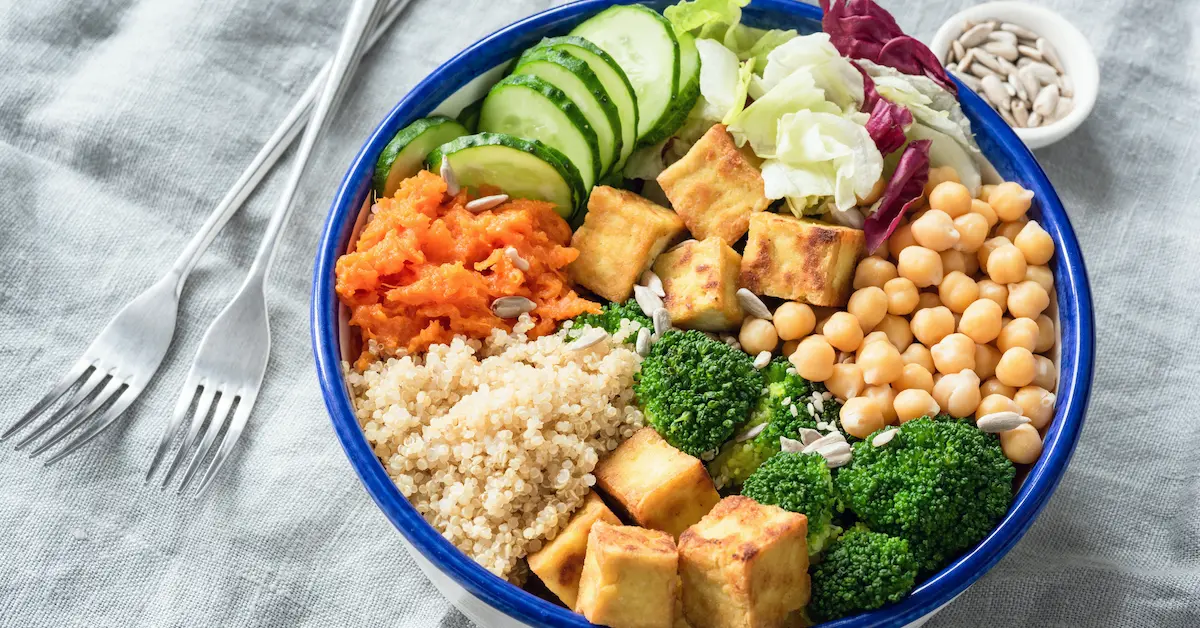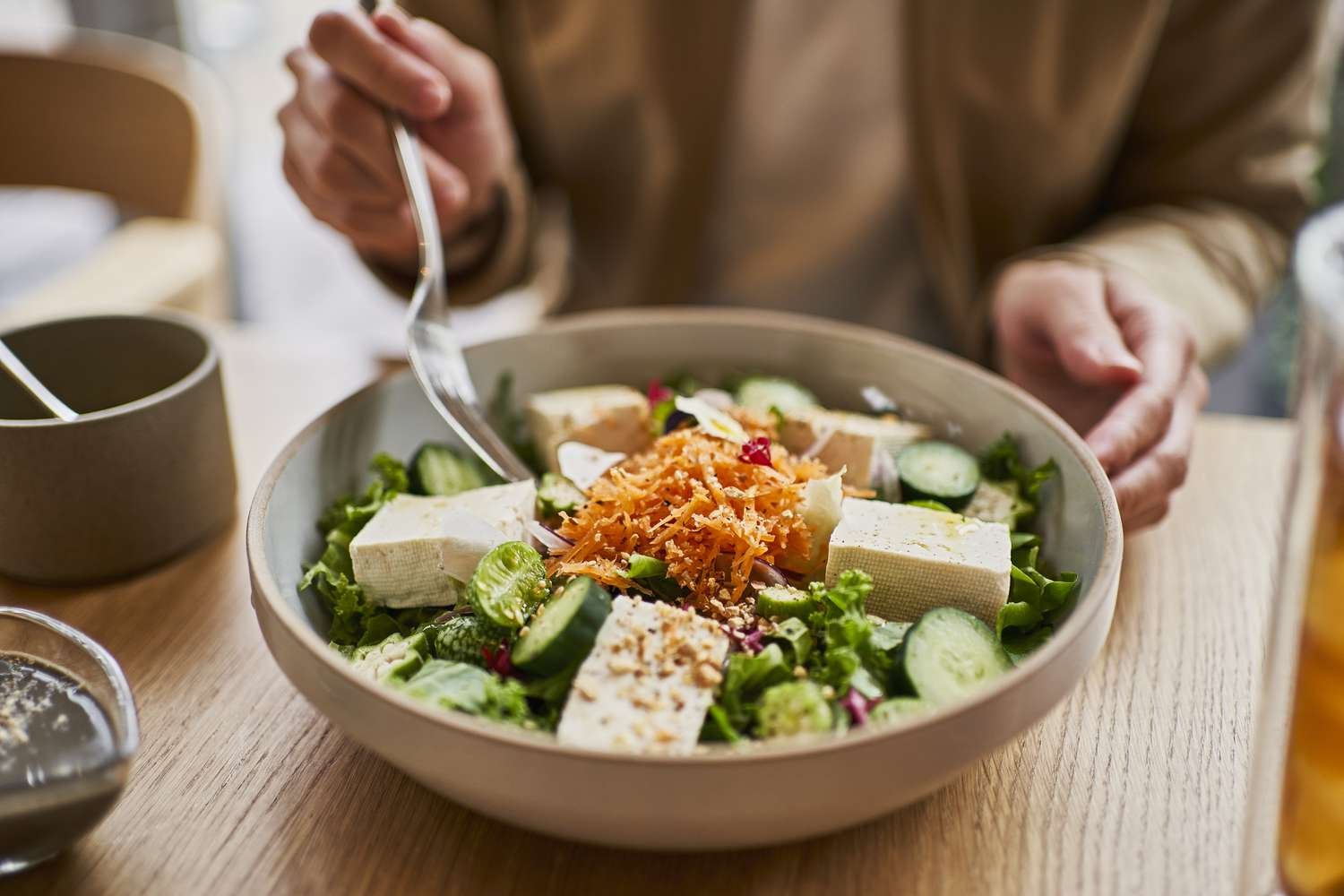Vegan food is a type of cuisine that excludes all animal products, including meat, dairy, eggs, and even honey. It’s a lifestyle choice that’s not only good for your health but also for the environment and animal welfare. With the rise of veganism, it’s easier than ever to find delicious and innovative vegan food options. In this article, we’ll explore the benefits of vegan food, popular vegan dishes, and tips for incorporating veganism into your daily life.

Vegan Food
What is Vegan Food?
Vegan food is a plant-based diet that focuses on whole, minimally processed foods. It excludes all animal products, including:
- Meat (beef, pork, lamb, etc.)
- Dairy (milk, cheese, yogurt, etc.)
- Eggs
- Honey
- Gelatin
- Any food that comes from an animal
Vegan food can be just as tasty and satisfying as non-vegan food. With a little creativity, you can create delicious vegan versions of your favorite dishes.
Benefits of Vegan Food
Vegan food offers numerous benefits for your health, the environment, and animal welfare.
Health Benefits
- Lower Risk of Heart Disease: Vegan diets tend to be low in saturated fat and high in fiber, which can help reduce the risk of heart disease.
- Weight Loss: Vegan diets are often lower in calories and higher in fiber, making it easier to lose weight and maintain weight loss.
- Improved Digestion: A plant-based diet can help regulate bowel movements and reduce the risk of digestive disorders.
Environmental Benefits
- Reduced Greenhouse Gas Emissions: Animal agriculture is a significant contributor to greenhouse gas emissions, so choosing vegan food can help reduce your carbon footprint.
- Water Conservation: It takes significantly more water to produce animal products than plant-based foods, so veganism can help conserve water.
- Deforestation Prevention: Many forests are cleared to make way for animal agriculture, so choosing vegan food can help prevent deforestation.
Animal Welfare Benefits
- Reduced Animal Suffering: Factory farming can be cruel and inhumane, Vegan Food so choosing vegan food can help reduce animal suffering.
- Conservation of Wildlife: Animal agriculture can lead to habitat destruction and species extinction, so veganism can help conserve wildlife.
Popular Vegan Dishes
Vegan food is more than just salads and tofu. Here are some popular vegan dishes you might enjoy:
Vegan Breakfast Options
- Tofu Scramble: A vegan version of scrambled eggs made with tofu, spices,Vegan Food and vegetables.
- Chia Seed Pudding: A healthy and filling breakfast made with chia seeds, plant-based milk, and fruit.
Vegan Lunch Options
- Vegan Burgers: Made with plant-based protein sources like beans, lentils, or mushrooms, vegan burgers can be just as tasty as traditional burgers.
- Vegan Wraps: Whole grain wraps filled with roasted vegetables, hummus, and avocado make for a satisfying lunch.
Vegan Dinner Options
- Vegan Lasagna: Layers of pasta, marinara sauce, and vegan ricotta cheese make for a delicious and comforting dinner.
- Vegan Curry: A flavorful and spicy curry made with a variety of vegetables and plant-based protein sources like tofu or chickpeas.
Tips for Incorporating Veganism into Your Daily Life
Making the switch to veganism can be easy and fun. Here are some tips to get you started:

Vegan Food
Start with One Meal a Day
- Begin by making one meal a day vegan, such as breakfast or lunch.
- Experiment with new recipes and ingredients to find what you like.
Explore New Ingredients
- Try new grains like quinoa, farro, or bulgur.
- Experiment with plant-based protein sources like tofu, tempeh, or seitan.
Stock Your Pantry
- Get rid of animal products in your pantry and replace them with vegan-friendly alternatives.
- Stock up on whole grains, nuts, and seeds.
Eat Out Vegan
- Look for vegan-friendly restaurants in your area.
- Don’t be afraid to ask your server about vegan options or modifications.
Article 1: “Vegan Nutrition 101: A Guide to Getting Enough Protein, Iron, and Calcium”
As a vegan, it’s essential to ensure you’re getting enough of the essential nutrients your body needs.Vegan Food This article provides a comprehensive guide to vegan nutrition, covering protein, iron, calcium, and other vital nutrients. Learn how to get enough of these nutrients from plant-based sources and maintain optimal health.
Article 2: “Vegan Meal Prep: Tips and Tricks for a Stress-Free Week”
Meal prep is a game-changer for busy vegans. This article shares practical tips and tricks for meal prepping like a pro, including how to plan your meals, shop for ingredients, and cook in bulk. Get ready to save time, reduce stress, and enjoy delicious vegan meals all week long.
Article 3: “Vegan Baking 101: How to Make Delicious Treats Without Eggs or Dairy”
Vegan baking can be a challenge, but with the right techniques and ingredients, it’s easy to create delicious treats that are free from eggs and dairy. This article covers the basics of vegan baking, including how to replace eggs, choose the right flours, and create moist and flavorful cakes, cookies, and pastries.
Article 4: “Vegan on a Budget: Affordable and Delicious Plant-Based Meals”
Eating vegan doesn’t have to break the bank. This article shares budget-friendly tips and recipes for delicious plant-based meals, including how to shop for affordable ingredients, cook in bulk, and make the most of your grocery budget. Learn how to eat vegan without sacrificing flavor or your wallet.
Article 5: “Vegan Travel: How to Stay Plant-Based on the Go”
Traveling as a vegan can be challenging, but with the right strategies and resources, it’s easy to stay plant-based on the go. This article covers the best vegan travel apps, how to find vegan-friendly restaurants and cafes, and tips for packing healthy snacks and meals for the road. Get ready to explore the world without compromising your Vegan lifestyle.
Here are the articles in full:
Protein is essential for building and repairing muscles, organs, and tissues. Vegan Food As a vegan, you can get enough protein from a variety of plant-based sources, including:
- Legumes (lentils, chickpeas, black beans)
- Whole grains (quinoa, brown rice, whole wheat)
- Nuts and seeds (almonds, chia seeds, hemp seeds)
- Tofu and tempeh
- Vegan protein powder
Aim to consume at least 0.8-1 gram of protein per kilogram of body weight per day.
Iron
Iron is essential for healthy red blood cells and oxygen transport. As a vegan, you can get enough iron from plant-based sources, including:
- Legumes (lentils, chickpeas, black beans)
- Dark leafy greens (spinach, kale, collard greens)
- Nuts and seeds (pumpkin seeds, sesame seeds, sunflower seeds)
- Whole grains (quinoa, brown rice, whole wheat)
- Fortified cereals
Aim to consume at least 18 milligrams of iron per day.
Calcium
Calcium is essential for healthy bones and teeth. As a vegan, you can get enough calcium from plant-based sources, including:
- Fortified plant-based milk (soy milk, almond milk, oat milk)
- Dark leafy greens (kale, broccoli, bok choy)
- Tofu and tempeh
- Nuts and seeds (almonds, sesame seeds, chia seeds)
- Whole grains (quinoa, brown rice, whole wheat)
Article 1: “Vegan Nutrition 101: A Guide to Getting Enough Protein, Iron, and Calcium”
Calcium
Calcium is essential for healthy bones and teeth. As a vegan, you can get enough calcium from plant-based sources, including:
- Fortified plant-based milk (soy milk, almond milk, oat milk)
- Dark leafy greens (kale, broccoli, bok choy)
- Tofu and tempeh
- Nuts and seeds (almonds, sesame seeds, chia seeds)
- Whole grains (quinoa, brown rice, whole wheat)
Aim to consume at least 500 milligrams of calcium per day.
Other Essential Nutrients
In addition to protein, iron, and calcium, there are several other essential nutrients to focus on as a vegan, including:
- Vitamin B12: found in fortified plant-based milk, cereals, and meat substitutes
- Omega-3 fatty acids: found in walnuts, chia seeds, flaxseeds, and algae oil
- Vitamin D: found in fortified plant-based milk, cereals, and sunlight exposure
- Zinc: found in legumes, nuts, and seeds
- Iodine: found in iodized salt, seaweed, and fortified plant-based milk
Tips for Getting Enough Nutrients
Here are some tips for getting enough nutrients as a vegan:
- Eat a variety of whole, plant-based foods
- Include a source of protein, iron, and calcium in every meal
- Consider taking a vegan multivitamin or supplement if you’re concerned about getting enough nutrients
- Consult with a registered dietitian or healthcare professional for personalized nutrition advice
Conclusion
As a vegan, it’s essential to ensure you’re getting enough of the essential nutrients your body needs. Vegan Food By focusing on protein, iron, calcium, and other essential nutrients, you can maintain optimal health and thrive on a plant-based diet. Remember to eat a variety of whole, plant-based foods, include a source of protein, iron, and calcium in every meal, and consider taking a vegan multivitamin or supplement if you’re concerned about getting enough nutrients.
Article 2: “Vegan Meal Prep: Tips and Tricks for a Stress-Free Week”
Meal prep is a game-changer for busy vegans. By preparing healthy, delicious meals in advance, you can save time, reduce stress, and ensure you’re eating nutritious food all week long. Here are some tips and tricks for vegan meal prep:
Plan Your Meals
Before you start cooking, take some time to plan out your meals for the week. Consider your schedule, dietary needs, and preferences, and make a list of the meals you want to prep.
Shop Smart
Once you have your meal plan, make a list of the ingredients you need and head to the store. Try to buy in bulk, shop for seasonal produce, and opt for whole, plant-based foods.
Cook in Bulk
Cooking in bulk is a great way to save time and reduce waste. Consider making large batches of grains, Vegan Food ,beans, and soups, and using them throughout the week.
Portion and Store
Once you’ve cooked your meals, portion them out into individual containers and store them in the fridge or freezer. This will make it easy to grab and go throughout the week.
Tips for Meal Prep Success
Here are some additional tips for meal prep success:
- Start small and gradually increase the amount of meals you prep
- Consider meal prepping with a friend or family member for added motivation and support
- Don’t be afraid to get creative and try new recipes
- Label and date your containers to ensure you know what you have and how long it’s been in the fridge
Article 3: “Vegan Baking 101: How to Make Delicious Treats Without Eggs or Dairy”
Vegan baking can be a challenge, but with the right techniques and ingredients, it’s easy to create delicious treats that are free from eggs and dairy. Here are some tips and tricks for vegan baking:
Replace Eggs
Eggs are a common ingredient in baking, but they’re not necessary. Here are some egg replacers you can use:
- Flaxseed: mix 1 tablespoon of ground flaxseed with 3 tablespoons of water to replace one egg
- Chia seeds: mix 1 tablespoon of chia seeds with 3 tablespoons of water to replace one egg
- Mashed banana: use 1 ripe mashed banana to replace one egg
- Applesauce: use 1/4 cup of applesauce to replace one egg
Choose the Right Flour
The type of flour you use can affect the texture and flavor of your baked goods. Here are some options:
- All-purpose flour: a versatile flour that works well for most baked goods
- Whole wheat flour: a healthier option that adds fiber and nutrition
- Almond flour: a gluten-free option that adds protein and





Leave A Comment